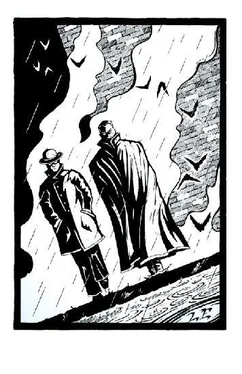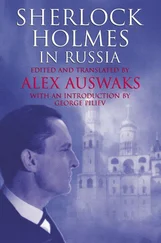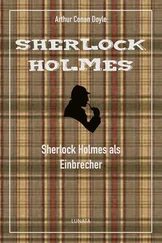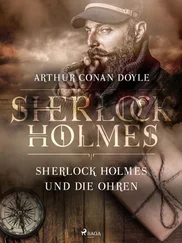“Whole settlements destroyed, Holmes. Systematically. Casualties exacted to the last man. Pursuit. That is not the tribal, vendetta way, no. It is rather more … European in nature. As it were.”
“And you suspect…”
Reed swallowed, mustering his confidence. “The Russians.”
“The Russians,” Holmes repeated, this time failing to disguise his skepticism. “Hoping to secure control of the strategic seal-skin and blubber markets?”
“Well, damn it all, Holmes … that’s what you are here to determine! All along the seal hunting grounds — entire settlements wiped out, and bloodthirsty work it is too. Not our business by and large, but if it is some Russian gambit…”
“Ah yes: a feint away from Afghanistan. A grand encirclement via the north pole.”
“The Russians, Holmes,” Reed’s voice had frosted over, even as his cheeks warmed scarlet, “are always a potential regional threat; consequently we have an obligation to investigate. You are the pre-eminent investigator in her majesty’s service; ergo you will put the theory to the test. We’ve men and supplies at your disposal, but I have it from The Chamber itself that you are not to engage. Find out what the devil is going on. Find out the why, and the who, but take no chances. London wants you on the case, but they don’t want you harmed, or I shall answer for it.”
“Indeed. So it is the great game of nations that brings me to your wasteland. I should have suspected no less.”
Watson scowled at the memory. It was always difficult to interpret Holmes’ motives, or even accept the initial premise of any case at face value. Was it the government asking for Holmes’ assistance in this instance, or had he somehow engineered the invitation? Was Holmes truly acting in his capacity as special investigator for the empire, or did he have his own private reasons for pursuing the matter? Watson couldn’t say, but the mere fact of his speculation told him how far their friendship had evolved over the years.
Watson’s back ached, and the occasional step was announced by a loud, sclerotic popping of his right knee. The air was not so frigid as it would have been in high winter, but it still clawed at his tobacco-coated lungs. And his shoulder of course — the one that had taken that Jezail bullet at Maiwand — that throbbed in echo to his laboured heartbeats. Shoulder , he chided himself ruefully. Be honest with yourself. Be as honest with yourself as you are suspicious of Holmes. That bullet took more than shoulder, and you know it.
Holmes set a tireless pace, his long-shanked stride crunching rhythmically against hard-packed snow. Here and there, tracks were visible even to Watson, but Holmes did not trust to them alone. Now, out of sight of the constabulary, Holmes freely referred to the fourteen inch, cruel-looking Zulu blade with its elephant-tusk pommel and strange glyphs upon the steel. The metal glowed with an eerie incandescence, gently guiding Holmes towards his quarry with more surety than any tracker.
Watson suppressed a shudder. Again the Zulu knife was leading them on; the knife that Murray had laid upon him after defeat at Maiwand; the knife that had stopped the bleeding of his open and failing heart, and made him whole again. The knife that had kept them hidden all during that nightmare retreat to Kandahar, with Afghan warriors harassing and killing at every step of those 314 infernal miles.
“I dreamed of you,” Murray had said, on the night that Watson had cheated death through Zulu sorcery. “I brought this damned thing out of Africa … for you. I want no part of it, John.”
Murray had given him the knife, and soon thereafter, Watson had begun dreaming of Holmes — seeing him clearly before even knowing his face or name.
The injury, the long retreat, his honourable discharge … all in the service of delivering an arcane artifact to a total stranger who would one day become closer than family.
Closer perhaps, but not nearly as familiar.
“You’re brooding,” Holmes said, without looking at his friend.
“I knew it was magic, Holmes, back at the settlement. Blast! Why the charade?”
“Leadership, my good doctor, the men were terrified. Brandishing a sorcerous artifact might well have routed them. Nothing holds the line like the imposition of true reason. They heard me make order out of chaos, and were becalmed.”
Watson snorted.
“You’re in a mood,” Holmes observed.
“It’s the forced march, I’m afraid. I’m feeling my age. We could at least have taken the sled.”
Holmes smiled. “That’s not entirely precise, is it?”
Watson scowled. “Damn it Holmes, I just … I do not understand why I can’t simply tell the truth in my accounts. Every time I recount how you glean facts from observing minutiae, or deduce conclusions from seemingly unconnected events, I feel a charlatan. It weighs on me, you know? You have a singular talent — a gift beyond all science — yet you insist on these elaborate, outrageous tales of deduction.”
“Are they not popular?”
“Yes! Yes damn it, they ARE popular, but that makes the lie all the heavier.”
“Watson. There is no point in telling a truth to people who will not credit it. Look at Challenger’s nonsense: tales to amuse old ladies and young boys, or so they are perceived. By couching my exploits in the language of science, you do more good than you know. I daresay you are pivotal to the entire enterprise, Watson. Trust me. You serve a higher purpose.”
Watson glared. It was not the first time Holmes had deflected him from this topic.
“Could all this possibly be the Russians?”
Holmes barked laughter. “It may well turn out to be Cossacks, though I wouldn’t lay odds on it. No Watson, there is a great game being played here, but I do not think the players are kings and earthly governments. I have never felt the pull of the blade as strongly as I do now. Something massive lurks in the distance Watson, I feel it!”
Holmes’ eyes shone, catching the dagger’s light, and Watson swallowed. The dagger had used them both — Watson as a messenger, and conveyance from Africa to England via Afghanistan; Holmes as an agent — but for what design, the Doctor had never been able to conceive. Were the horrors all connected in some way — all the stories he had retold as logical puzzles — could they be sewn together into a larger tapestry if the real details were laid out plain?
Watson simply didn’t know. He was complicit in an elaborate ruse, the truth of which made no sense, and the lies of which proved best-sellers. In the end, he had to do what he had always done: trust Holmes. A hard thing to do, made harder with each passing adventure.
They soldiered on, passing from ridge to ridge at a steady pace. A gloom had descended upon Watson: too much mention of Afghanistan with its horrors both human and supernatural. Holmes for his part hummed as he strode, drifting from classical passages to music hall refrains as his mood dictated. With the dagger feeding him, drawing him on, he seemed to pulse in sympathy with its hellish glow. Cocaine had always seemed to Watson an appropriate metaphor for what the dagger did to Holmes.
With the sun sliding inexorably into the ice, and the indigo shadows growing longer around them, Holmes and Watson topped a gentle slope and dropped immediately to prone positions. Holmes grinned too hard and too wide, his eyes dancing. Watson sucked in his breath, squinting his eyes against the cold. His vision was not what it once was, but it wasn’t the clarity of what he saw that made him doubt his senses — only the sheer improbability of the hulk in the distance.
It was a galleon — shattered and ragged and black against the ice — which listed a quarter turn on its starboard side. She was three-masted, Spanish hulled, and a gigantic gash split her side, half filled in with blown snow. She was an old ship, probably three, four hundred years out of date — one of the great Atlantic deep-sea traders the Dons had used to empty Mexico of its gold.
Читать дальше












